The International Round Table has completed its work in Tashkent on the topic: "Uzbekistan's Progress in Poverty Reduction: Analysis and Findings", organized by the Center for Economic Research and Reforms (CERR) in cooperation with the World Bank, the United Nations Development Program in Uzbekistan and the United Nations Children's Fund Office in Uzbekistan.
The discussion forum brought together representatives of international organizations, UN agencies, civil society institutions, experts from foreign think tanks and the media.
It is important to note that Uzbekistan has made progress in advancing its transformation agenda in the fight against poverty and inequality. Starting from 2021, the poverty level in the country has been reduced from 17% to 11%.
According to CERR estimates, over the past three years, there has been a decrease in the structure of wage income and the growth of small businesses. If in 2021 income from wages amounted to 70.2%, and small businesses to 0.7%, then by the end of 2023 it was already 62.7% and 2.9%, respectively.
Nobel Laureate in Economics, member of the US National Academy of Sciences Abhijit Banerjee, Director of the Center for Economic Research and Reforms Obid Khakimov, the World Bank Country Manager for Uzbekistan Marco Mantovanelli, UNDP Resident Representative a.i. in Uzbekistan Anas Fayyad Qarman, UNICEF Representative a.i. in Uzbekistan Geoffrey Ijumba addressed their welcoming remarks to the participants of the round table.
In his video message to the participants of the round table, Prof. Banerjee, welcoming the participants, called for a deeper study of poverty reduction issues and the development of policies that will change the world.
«I am glad to welcome you to this round table, which is being held in Tashkent, dedicated to reducing and combating poverty. This is one of the biggest problems of our time. I am glad that Uzbekistan understands the importance of a broad expert discussion of this issue at such forums, and focuses on the problem of poverty by widely highlighting opinions, positions, innovations, problems and action plans from the expert community for further working on poverty reduction in Uzbekistan», - Abhijit Banerjee noted.
Wishing a successful discussion, the co-founder of the Poverty Action Lab (J-PAL) underscored that he was “really very proud to be a part of this process (of fighting poverty)" and expressed regret that he "personally could not participate” in the forum.
In his address, Obid Khakimov outlined 6 key areas in the fight against poverty – the development of the private sector and entrepreneurship, job creation, strengthening the social protection system, improving the quality and accessibility of education, expanding access to healthcare and medical services and ensuring environmental safety.
The Director of the CERR noted that Uzbekistan is aimed at reducing poverty and each new reform is implemented on the basis of research that expresses the will and wishes of the people.
«Today, our country is going through great transformational processes. In parallel with the changes, we study the needs of people and their problems. It is quite obvious that Uzbekistan has demonstrated its commitment to poverty reduction», - CERR director noted.
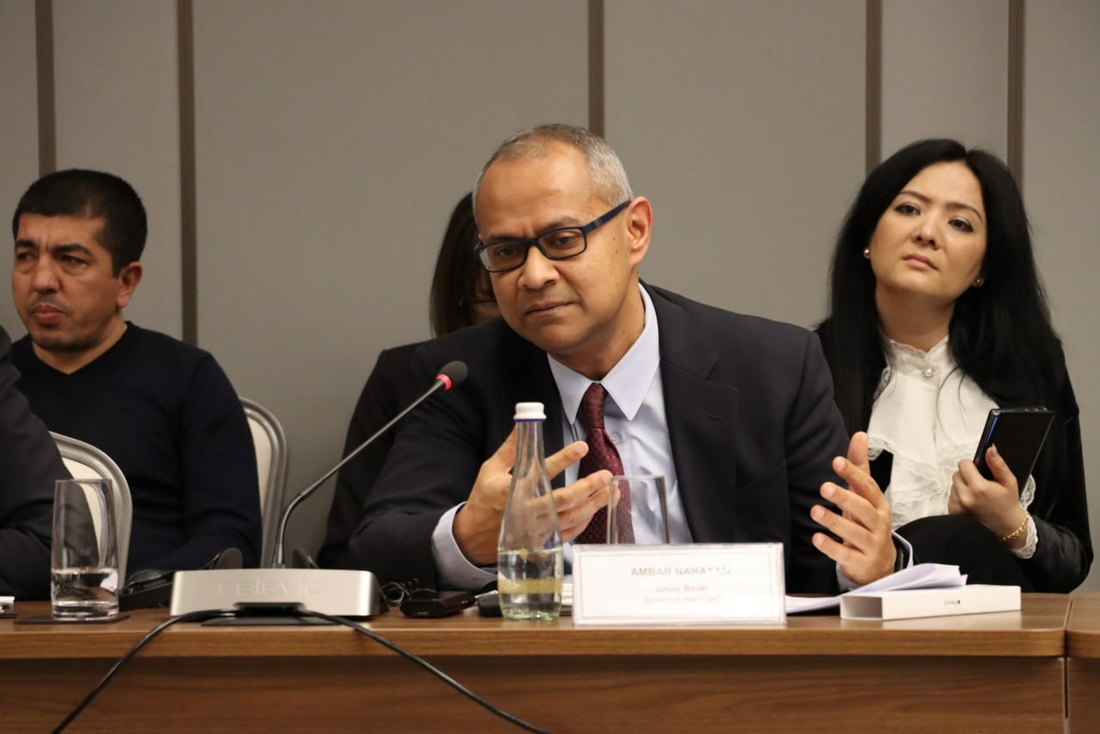
Dr. Ambar Narayan, a Practice Manager in the Poverty and Equity Global Practice of the World Bank: «Since 2020, Uzbekistan has made significant statistical advances in measuring poverty, helping us understand the challenges faced by the poor. This has clearly shown that addressing constraints on poor households' access to higher-quality employment is vital. Prioritizing economic mobility and investing in disadvantaged groups, including youth, women, and low-skilled workers, is crucial for transitioning to more productive jobs and reducing poverty».
Anas Fayyad Qarman, UNDP Resident Representative a.i. in Uzbekistan, in his opening remarks noted:
«In order to comprehensively understand poverty in terms of well-being and quality of life, we are convinced that countries need to take into account both monetary and non-monetary dimensions. The more data is available in a simple and understandable format, the more tools decision makers have to target their efforts to reduce poverty in all its forms and dimensions».
Geoffrey Ijumba, UNICEF Representative a.i. in Uzbekistan welcomed Uzbekistan's efforts to develop a National Action Plan to eradicate child poverty, and noted that «the number one step on this path» is to assess the scale of the problem.
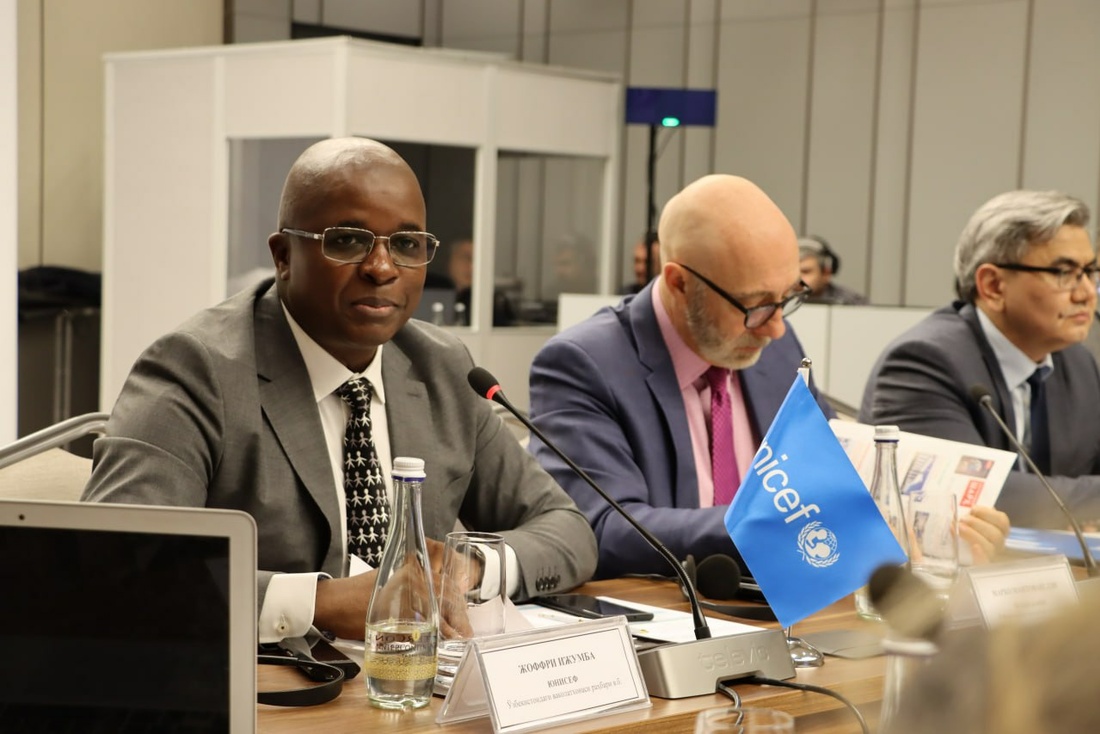
«Putting child poverty on the map and developing respective policies and programs will allow Uzbekistan to reach its goals in poverty reduction as highlighted in the 2030 development strategy. It will also contribute to achieving the SDG goal of eradicating extreme child poverty and halving it by national definition».
Prof. Sabina Alkire, Director of the Oxford Poverty and Human Development Initiative (OPHI), noted that since the 1st poverty forum in Bukhara, as well as the 2nd in Tashkent, she has been impressed by the political will and determination of the Uzbek authorities to end poverty. She noted that measuring monetary and multidimensional poverty, and combating both of them, is the "gold standard" both globally and within the framework of the SDGs.
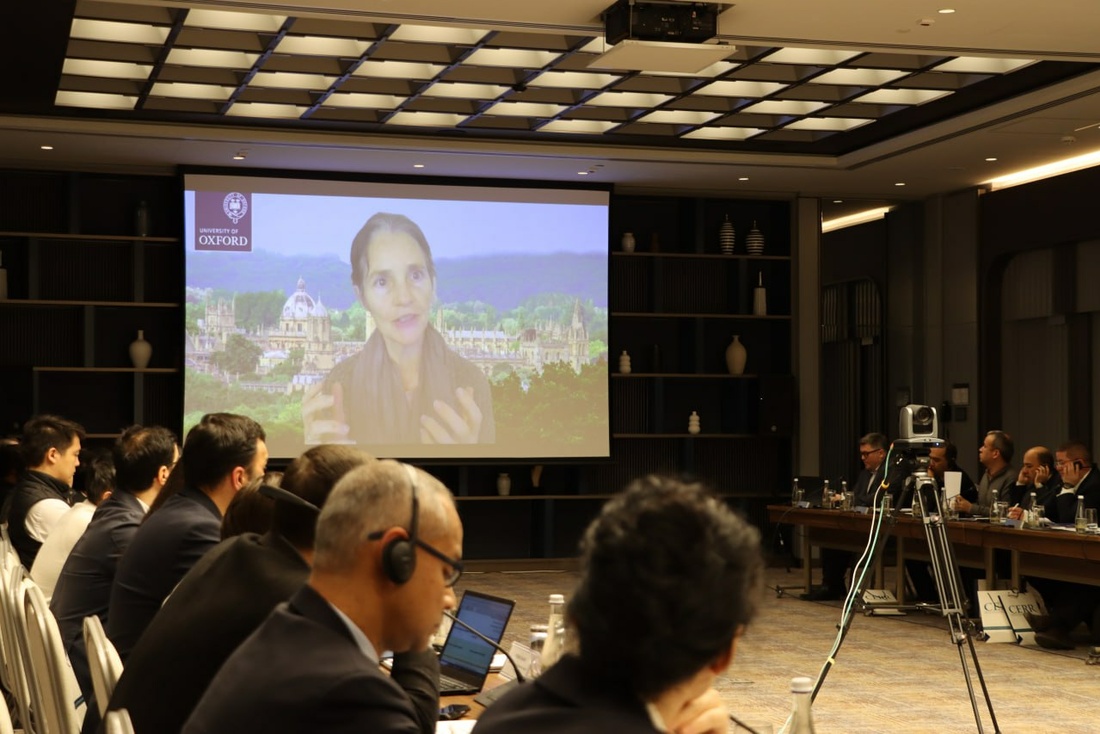
«Uzbekistan's focus on effective poverty reduction measures, regular updating of MPI data and the use of new data will eventually achieve success. When Uzbekistan’s MPI passes the pilot stage and becomes finally digitized, and household budget surveys are updated regularly, this will, in fact, very accurately show Uzbekistan's progress in reducing poverty. And thanks to this progress and your actions, people's lives will change for the better. And I think this is a very good motivation to conduct further research through MPI».
The key issues discussed at the round table were reforms to strengthen social protection systems, ensure economic and financial conditions for equal access to resources, and mobilize resources for poverty eradication programs.
Uzbekistan's active actions in the fight against poverty and inequality were highlighted at the event. It was noted that more than 2 million 300 thousand deprived families, women, single elderly and people with disabilities are fully covered by the social protection system.
Speaking about the reforms aimed at combating poverty in Uzbekistan, the experts focused on the tools that are used to create social programs, increase the targeting of support for the deprived, develop entrepreneurship, and understand the effectiveness of various programs adopted.
Within the framework of the round table, foreign experts and partners were presented with the ongoing work on the ground based on the makhallabay system. Following the discussions, the experts noted the need to monitor and evaluate the effectiveness of the impact of strategies and government programs in Uzbekistan, as well as a deeper study of the Uzbek model of poverty reduction.
With this, the International Round Table concluded its work.
CERR Public Relations Service
Tel.: (+998) 78 150-32-20 (417)

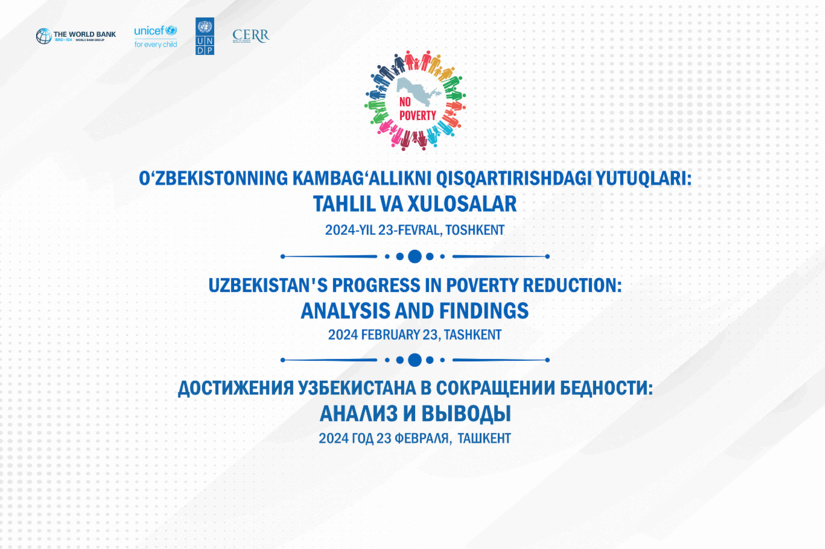
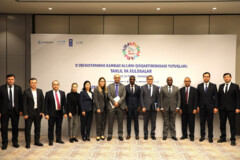
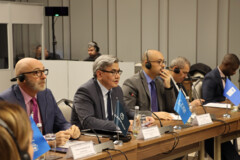



















leave a comment